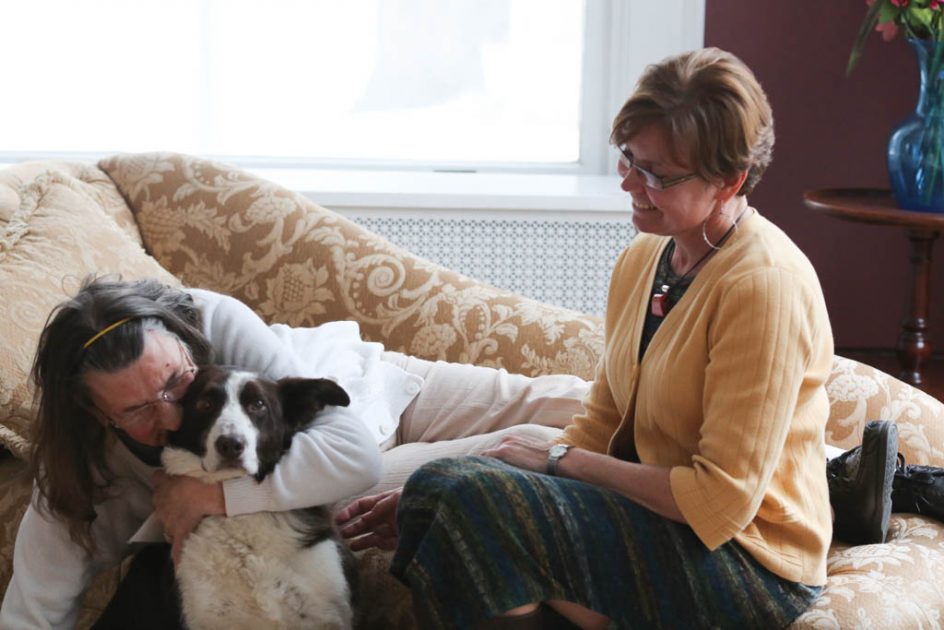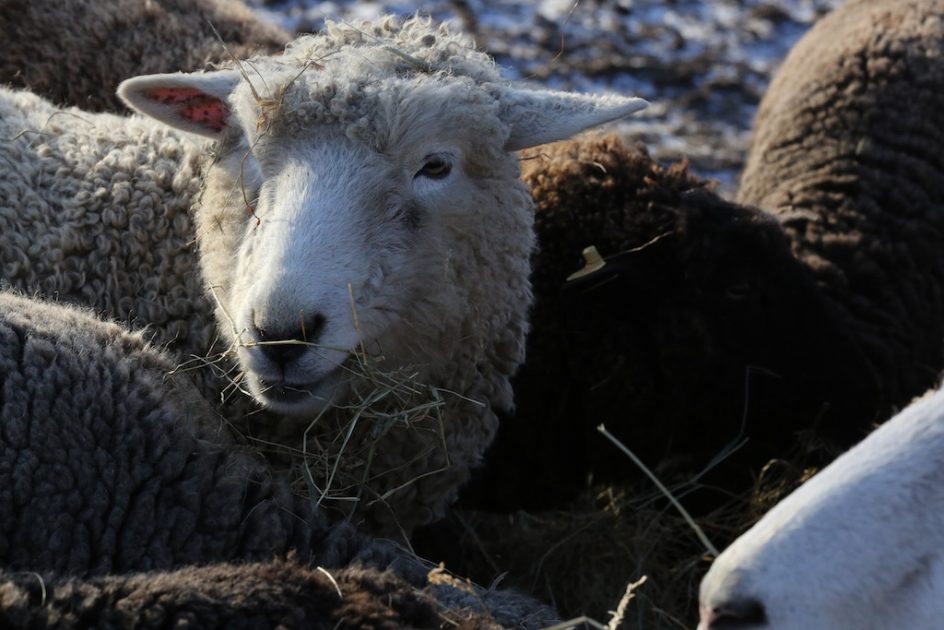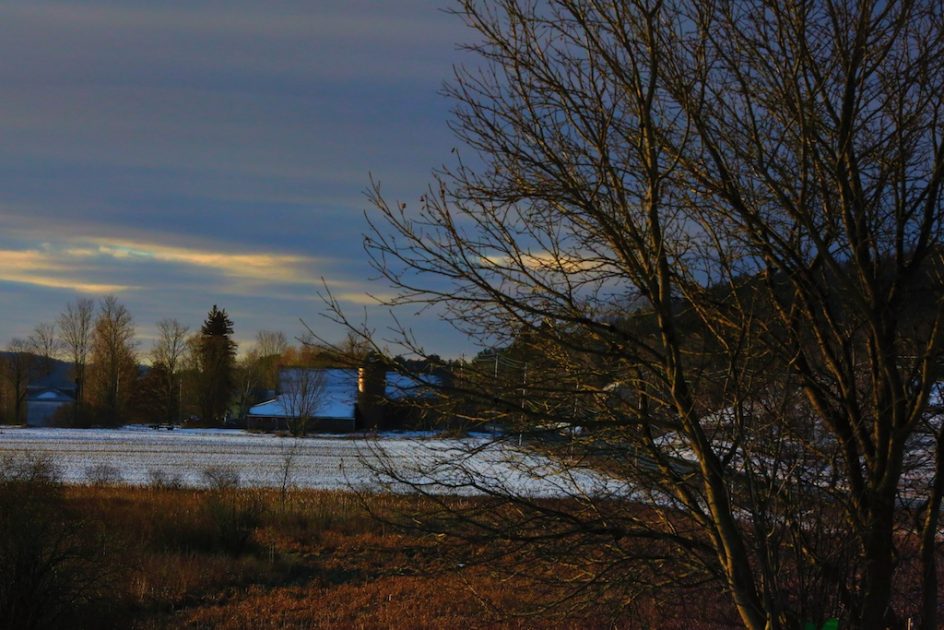The media’s pundits cast the split in America as a struggle between the left or the right, but if you spent even a few minutes looking at a map of how Americans voted, it is almost instantly clear that this is not a new struggle, but the increasingly intense continuation of an old one, a conflict between rural and urban America.
Donald Trump won almost every rural county in America, Hillary Clinton won every major urban area. A national vote map reflects a civil and cultural divide between the country mice and the city mice.
Since the modern pundit or journalist rarely, if ever, leaves Washington, New York or Los Angeles, and never sets foot in the country, it is not really surprising that the election was a stunning surprise to the media establishment, and a humbling one.
I do not for a second believe they are racists and bigots and naive fools. That is not the way to listen. I’m not writing these pieces to argue. I’m writing them to understand, and sharing the complex process of understanding, a dying art in America.
My effort to write about the frustrations and disconnections of the country was met with instant ridicule and contempt on Facebook:
This is, of course, precisely what country people think city people say and think about them. The new idea, on both sides, is that listening is treasonous. Social media and our political leaders are teaching us how to talk and talk, but not to listen.
I am a freak in that I love history, a lonely genre: History reminds us that this conflict is not new in America.
Walter Lippmann, the era’s preeminent newspaper columnist in 1927, recognized that bitter political disputes raging in the country represented “the older American village civilization making its last stand against what to it looks like an alien invasion,” as he wrote in The Atlantic in 1927.
I understand how Kevin feels, I have felt the same way at times, and been as puzzled. But there is a great danger to being self-righteous. To be self righteous is not the same thing as being righteous. Self-righteousness slams the door on understanding, understanding is the key to healing and compromise. According to Merriam-Webster, to be self righteous is to “be convinced of one’s own righteousness especially in contrast with the actions and beliefs of others; to be narrow-mindedly moralistic.”
Kevin is clearly a thought and intelligent person concerned with the right thing. But he crosses a line for me when he not only disagrees with rural voters, but presumes they must lack the personal ethics and baseline intellect that he possesses.My friends and neighbors in the country do not generally share my political beliefs, but they are mostly profoundly ethical and have a strong baseline intellect. Their lives are hard and challenging, they most often handle them with grace and generosity. None of them have ever failed to come rushing to my side whenever I was in trouble, and I am hardly what you would call a local.
Today, the divide is wider than ever. Many of our larger cities are booming, wealth and cultural power and jobs flowing to them like a swollen river, along with the young people who once stayed to work on the family farm. The tech economy has almost completely bypassed rural America, those great jobs are not coming here. Silicon Valley is a fantasy, a myth.
And nobody cared. No President, political candidate or leader, surely none of the people shouting about how bigoted and biased and stupid rural Americans must be to support a man like Donald Trump. I believe they will care now.
Battles rage everywhere on social media, but few rural communities even have broadband Internet access. The socially conscious tech companies don’t seem to care much about that, horror stories abound around her about people desperately struggling to get Internet access for their kids.
In the cities, immigration is not even an issue. People lived and worked alongside of refugees and immigrants every day. Their kids went to school with our kids, I had immigrant neighbors, I shopped in immigrant stories.
Many immigrants first took the jobs nobody else wanted – restaurant kitchens, household work, health care, factory work. Then they moved up.
Refugees were no threat to us, we heard their stories, knew them by face and name, welcomed them. They were out neighbors, sometimes our friends. They were never any threat to us, nor was there any serious resistance to them.
But there are no immigrants or refugees in most rural areas, the people here only know what they see on the news or what their leaders tell them. They voted for Donald Trump, they believe he cares about them and will help them stave off the new urban civilization, and he is telling them every day that refugees are dangerous and will come here to kill and harm all of us.
His claims are quite believable and credible to people who every day see horrific stories of be-headings and massacres and have nothing to balance those claims against. The media makes vast amounts of money drowning us in these horrific images every day, they create a distorted and dangerous picture of the world. But they take no responsibility for those images or the damage they cause.
Sitting on a farm or watching those images of mayhem and cruelty in a small town on TV every night is a transformative experience, a dreadful horror that must be stopped at all costs. Terrorism is an almost unimaginable horror to many rural people, they have never known or imagined anything like it.
There are migrant workers on farms here, mostly from Mexico, the farmers all say no American kids want to do that kind of work. But we never see the workers, they come out of the farms only on Sunday morning to shop at the supermarkets. They work fiendishly hard and sent most of their earnings back to their families. We do not fear them or persecute them. We don’t know them very well either, and in the winter, most of them are gone.
To me, this does not make country people bigots or racists or fools. It makes them frightened. They want their lives, jobs and Main Streets back, their values respected. They want to be part of this new global prosperity. They want to be listened to.
I’m not sure anyone in my town has ever knowingly seen a trans-gender person, let alone consider their bathroom access. The evolving and ascending newurban civilization is very hard for them to follow. It is an article of faith here that you take your life in your hands when you go to New York City, it is an insane place.
Yet people here are among the most tolerant I have ever know. When I lived in Montclair, N.J., a hip creative community, parents pulled their kids out of one teacher’s classroom when it became known he was a Republican who voted for George Bush. Denise errs when she attributes all virtue to one side of a political conflict. None of us are perfect.
African-Americans (not many) live in this area, so do gay people and city people. They are not harassed or demonized or driven away. The gay people I know here say they have always felt safer up here than in Boston or New York City. There is a culture of tolerance here that is very real – do whatever you want on your own property, it is nobody’s business.
Rural Americans have watched for decades as their culture withered away, their Main Streets emptied, their children flee to bad jobs in remote cities. Farming was a calling, not a job. There are few callings available now. The family farms are dying off, the mills and factories and jobs left for other countries, their restaurants and merchants shuttered.
After World War II, economists and government bureaucrats made the abandonment of rural America official government policy, the farms were doomed as inefficient, rural communities too small and inefficient to complete in the new global economy.
The mass migration that followed out of rural America shattered the very fabric of life and promise. Why is their anger such a surprise?
I did not vote for our new President, but I don’t agree with Denise that the people who voted for him were all ignorant, selfish and bigoted. That is elitism by any name.
She may know why more than 60 million people, most of them rural Americans, voted the way they did, but the people I have spoken with who voted for him – people I know, trust and like – are not ignorant, selfish and bigoted.
Political scientists say that demagogues arise when government has broken its promises to people. I am a refugee in every sense of the word – my family were refugees, I did not belong in the city, in the suburbs, and I will always be an outsider here.
That is a comfortable state for me, and as a writer, it has its benefits. I can sometimes step back and try to observe, sometimes enough to see things other people – I’m thinking of Denis and all the angry hysterics – cannot see.
I am different from many country people, and yet I very much belong here. I trust and respect almost all of the people I know. It is always dangerous to generalize about so large a category of people, but I believe they care about the country just as much as I do, and also want the best of it. Like most human beings, rural people fear what they can’t see and don’t know.
I believe they will support the President as long as he keeps his promises to them, and not for a second longer. “After all these years,” Mark, a farmer down the road told me, “a politician was actually listening to us.”
Listening is a powerful political tool, and it can change the world in a hurry. It just did. When things go wrong for me, I can’t just ask what is wrong with everybody else? I have to look at me.
I have faith in country people, they have common sense and generally, big hearts. They want to do the right thing.
I believe they will support any other candidate who cares about them and keeps his or her promises to them and their children. They are fighting for a way of life in grave peril. For me, that’s the heart of it.
I can’t just talk and talk, condemn and dismiss, I have to listen and listen. Listening is not the same thing as agreeing, it is not the same thing as surrendering.
Listening is not about arguing, or even replying. It is about understanding.



